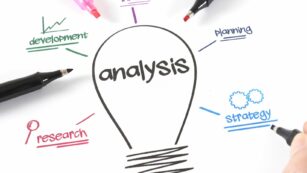In today’s rapidly evolving marketplace, staying ahead of the curve is crucial for businesses aiming to thrive. Market analysis tools are indispensable for gaining insights that drive strategic decisions. From startups to multinational corporations, understanding market dynamics through sophisticated analysis can pinpoint opportunities, optimize operations, and mitigate risks.
Tools for Market Analysis
The array of market analysis tools available today equips businesses with the capability to dissect complex market dynamics and consumer behavior accurately. Leveraging these tools allows companies to maintain a competitive edge by making data-driven decisions.
Types of Tools
Market analysis tools can be categorized based on their functionality and the specific aspects of the market they target. Common types include:

-
Data Analytics Software: Tools like Google Analytics and Tableau help businesses analyze large volumes of data, revealing patterns and insights that are not immediately obvious.
-
Customer Sentiment Analysis: Platforms such as Brandwatch and Mention monitor social media and the web to gauge public opinion, providing businesses with real-time feedback on customer satisfaction.
-
Competitive Analysis Tools: Applications like SEMrush and Ahrefs analyze competitors’ online strategies, offering insights that businesses can use to refine their own strategies.
-
Survey and Research Tools: SurveyMonkey and Qualtrics facilitate direct customer feedback through surveys, empowering businesses to understand customer needs and preferences.
-
Economic Forecasting Software: Tools such as the EViews and Stata help in predicting economic trends, assisting companies in preparing for future market conditions.
Each category serves a distinct purpose, enabling businesses to approach market analysis from multiple angles.
Importance in Strategic Planning
Market analysis tools are crucial in strategic planning for several reasons:
-
Informed Decision Making: Companies use these tools to collect and analyze data, ensuring that their strategies are based on solid, empirical evidence rather than intuition.
-
Risk Mitigation: By understanding potential risks and market volatility, businesses can develop strategies that minimize risks.
-
Identifying Opportunities: These tools help companies spot emerging trends and undeveloped markets, allowing them to allocate resources more effectively.
-
Performance Tracking: Continuous monitoring with these tools helps businesses measure the impact of their strategies and make necessary adjustments.
-
Long-term Planning: Accurate market forecasts enable businesses to plan for the long term, aligning their operations with predicted future conditions.
Key Tools for Market Analysis
SWOT Analysis

SWOT Analysis stands as a pivotal tool for assessing a company’s Strengths, Weaknesses, Opportunities, and Threats. It serves as a fundamental framework for strategy development by mapping internal and external factors that directly impact business success. Analysts and strategists utilize SWOT Analysis to pinpoint areas where a business excels, identify vulnerabilities, explore potential opportunities, and gauge external threats that might affect future growth. For example, a company might discover its strength in a robust R&D department, weakness in supply chain inefficiencies, opportunities in emerging markets, and threats from increasing regulatory pressures.
PEST Analysis
PEST Analysis, encompassing Political, Economic, Social, and Technological factors, provides a comprehensive method for examining the macro-environmental elements influencing a business. This tool helps in scanning the external environment, making it indispensable for strategic planning and market research. Companies employ PEST Analysis to prepare for future challenges and align their strategic plans with macroeconomic realities. For instance, a business might analyze changes in government policy, economic shifts like inflation rates, social trends affecting consumer behavior, and technological advancements that can either disrupt or enhance its operations.
Advanced Analytical Tools
Predictive Analytic Tools
 Predictive analytics tools utilize historical data to predict future outcomes, aiding organizations in proactive decision-making. Businesses apply these tools to anticipate market trends, customer behaviors, and potential risks. Examples include machine learning models and statistical algorithms. For instance, regression analysis forecasts sales based on seasonal trends and consumer demographics. Meanwhile, clustering algorithms help marketers segment customers for targeted campaigns, enhancing personalization and effectiveness.
Predictive analytics tools utilize historical data to predict future outcomes, aiding organizations in proactive decision-making. Businesses apply these tools to anticipate market trends, customer behaviors, and potential risks. Examples include machine learning models and statistical algorithms. For instance, regression analysis forecasts sales based on seasonal trends and consumer demographics. Meanwhile, clustering algorithms help marketers segment customers for targeted campaigns, enhancing personalization and effectiveness.
Choosing the Right Tool
Selecting the ideal market analysis tool is essential for any business aiming to stay competitive and responsive in their industry. Each tool serves a unique purpose whether it’s understanding broad market dynamics or analyzing specific data trends in real-time. Businesses must consider their specific needs and the nature of the data they handle to make the best choice. Ultimately the right tools will not only enhance decision-making but also empower businesses to anticipate market shifts and maintain agility in their strategic approaches.

